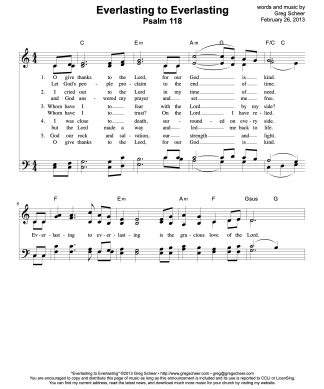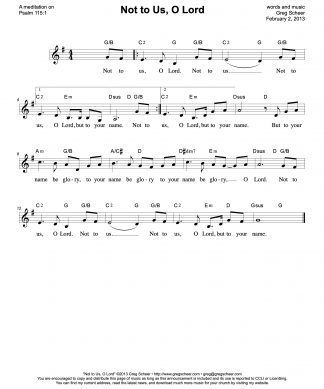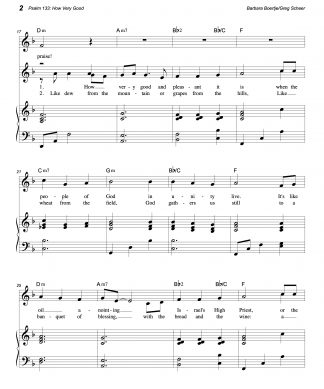
SYNOPSIS: Greg talks about songs of devotion and songs of the cross, and various ways to include these songs in a Lenten series.
EPISODE SECTIONS:
- 0:00 – Introduction
- 0:46 – Tunes and arrangements of “Jesus, Lover of My Soul”
- 3:46 – Tunes and arrangements of “When I Survey the Wondrous Cross”
- 8:26 – John Stainer’s “God So Loved the World”
- 9:15 – Tunes and arrangements of “Alas, and Did My Savior Bleed”
RESOURCES MENTIONED IN THIS EPISODE:
- Hymns: Jesus, Lover of My Soul (tunes: MARTYN, ABERYSTWYTH); When I Survey the Wondrous Cross (tunes: HAMBURG, O WALY WALY); Alas, and Did My Savior Bleed (tunes: HUDSON, MARTYRDOM)
- Modern Tunes: The Wonderful Cross; Alas, and Did My Savior Bleed (Bob Kauflin); Alas, and Did My Savior Bleed (Annie Quick)
- Choral Arrangements: When I Survey the Wondrous Cross (Gilbert Martin), God So Loved the World (John Stainer); Alas, and Did My Savior Bleed (Deborah Govenor)
- Arrangements by Greg: Jesus, Lover of My Soul, Before the Cross, Alas, and Did My Savior Bleed,
TRANSCRIPT
Hello, friends. This is Greg Scheer and you are listening to the Greg Scheer Music Podcast. This episode is a continuation of our Lent series. It’s the third in the series; I’d encourage you to go listen to the first two. And now, the exciting conclusion to “what to do during Lent”!
So today we’re going to talk about, mostly about songs of the cross, and we’re going to include some things for choir. So if you have a choir and you’re wondering what to do during Lent, then stay tuned. We’re going to talk about some different things.
So, let’s start with “Jesus, Lover of My Soul.” This is not a cross song; what I often do in Lent, is I start with more, songs of devotion and songs about Christ’s nature and our reliance on Christ in the beginning of Lent, and then focus, really, more and more on the cross as Lent goes on. I think that’s a good way to do that, and it slowly brings into focus the cross, and we get into Holy Week, and there’s a lot of impact there.
So, “Jesus, Lover of My Soul” is a very, very well-loved hymn. What’s interesting is that Charles Wesley, who wrote it, his brother John was his editor, and John said, “No, this is, this is too intimate. We shouldn’t publish this.” And it was only published I think after his death, maybe, maybe after a number of years, but it’s one of his most beloved texts, but his brother John felt that it was too intimate. And it’s really interesting, you know, we don’t usually, well we shouldn’t really call Jesus a lover, our lover, because that has sexual connotations, but to say “Jesus, lover of my soul” is a different thing. And many people connect with this text.
There are a number of tunes to go with it, and that’s one of the things about this text that is unfortunate, is that there’s no tune that has just locked in with it. There’s the tune, I think it’s called MARTYN— “Jesus, lover of. . .” Oh, how does it go? Anyway, it’s in 6/4 time, and it’s not my favorite of them, but it’s a lot of people’s favorite, so it’s kind of surprising. So kind of check that out with your church if you’re going to do that.
The other one is a Welsh tune, ABERYSTWYTH. I can never pronounce the Welsh tunes because they have way too many Ys in them. But that’s the one— “Jesus, lover of my soul, let me to thy bosom fly. . .” I think that is just a beautiful tune, but it’s a minor tune, and so a lot of people, really, they feel like it’s too morose. So you kinda have to check that out. Into that fray I added my own version. And this is a choral version that’s published by GIA Music, and the tune goes “Jesus, lover of my soul, let me to thy bosom fly. . .” It’s really quite an easy anthem, so you should consider trying that out with your choir during Lent. That’s a good one.
Now, let’s move on to more cross-specific songs. The classic is “When I Survey the Wondrous Cross.” It’s an Isaac Watts text, and you just don’t get a better hymn text than this. It’s just beautiful the way the verse one leads into two, into three, and then in four. The first verses are observing the cross, when I survey, when I look at the cross. And it’s just contemplating Jesus and his sacrifice for us. And then verse four is this beautiful verse of response that responds and says, “If Christ can give all that to me, then certainly I can give my life to him.” What’s really interesting is the traditional tune for that only has five notes. Count em. . . So you get the point, only five notes. But with just five notes, it’s just such a beautiful tune. I don’t know how the tune is so beautiful with just so few notes.
So of course, there’s no reason not to sing that just as a hymn, but you can also do the Chris Tomlin version, which adds the “Oh, the wonderful cross. . .” It’s got a nice chorus that is added to that, so that’s another option for “When I Survey.” And you can try some creative things, especially if you’re in a blended setting. You could have your organist or pianist lead the traditional version of the verse, and then have your praise team take over during the chorus, and sing the Chris Tomlin chorus of it. You can go back and forth like that. All sorts of things that you can do with just very few resources like that.
Another thing to be aware of is the Gilbert Martin choral arrangement. It is just magnificent. If your choir has not sung this then you really need to sing it. It’s just spot-on, really sings well, it’s just, oh, it’s just lovely. So the Gilbert Martin arrangement of “When I Survey.”
Now, interesting, I actually think that the tune, I can’t remember the name of the tune. . . I think the emphasis is a little bit off in these words. “When I survey,” it just doesn’t work quite right for me. And I really like the tune O WALY WALY, “The Water Is Wide.” That, you remember— “The water is wide, I cannot get o’er. . .” Right? So that tune, and we use it for lots and lots of hymns as well. But I like it for this text: “When I survey the wondrous cross on which the Prince of glory died. . .” Doesn’t that fit nicely?
So, something that you can do— I do this a lot— is I’ll take a song that I really want to pound out over and over during the season, but I know that I just can’t sing it every single week as is. So I’ll take it, and I’ll vary it each week. So I might do the traditional one week, I might do the traditional with the Chris Tomlin chorus the next week, I might do the Gilbert Martin choral arrangement the next week, and then just do a folk version. And this is a way of kind of, when we use different tunes, it’s not just to confuse people or irritate them, although that sometimes does happen. . . I led this one time in a church, and this guy walks up to me after the church and says, “Thanks for ruining my favorite hymn.” Like, I don’t know, do I say, “You’re welcome”? So it’s not always going to be a win. But I think the good side of what happens when we do different tunes, is that we hear the words in a different way, right? So we put a different frame on the words and we experience it in a different way. And I think that’s really important that we do that.
Another cross song, if you have a choir. It’s funny, John Stainer’s song, “God So Loved the World,” you know, it’s a classic, but it’s kind of tired, right? You know, a lot of, not many choirs would do that because it’s like, every choral library has it. You have the Hallelujah chorus, you have— I guarantee. Just go and look in your choir folders and you’re going to find John Stainer’s arrangement, or setting, of “God So Loved the World.” And I was, I kind of felt that way about this, and one year I just kind of said, “Okay, it’s a classic. I should do it.” And I sucked it up and I did it, and boy, there’s a lot of music in there. I really, it’s just really quite a beautiful song. So, this is one that if you have that in your choral library I’d encourage you to go look for that.
And then, another one: “Alas, and Did My Savior Bleed.” There are lots of Jesus bleeding songs that you can use. And you kind of have to gauge your context, right? So you, in your context something like “There Is a Fountain Filled with Blood” might not be the right song. And I understand that “Alas, and Did My Savior Bleed” is quite melodramatic, it’s quite graphic. I do think that every church should sing this, you know, once during Lent. And the beauty of this song is that there’s a lot of ways to sing it. So, there’s the traditional tune, I think the tune is called HUDSON— “Alas, and did my Savior bleed, and did my Sovereign die. . .” So it’s a little more of a. . . little more upbeat and sturdy, and that’s the one that many people know. There’s one by Bob Kauflin, I can’t recall offhand how that goes. There’s one by Annie Quick, which is really, I just like this version a lot. I’ll just play a little bit of it.
Alas, and did my Savior bleed,
and did my Sovereign die?
I just completely butchered that, but you can see how it goes. It’s kind of a Irish kind of sound, and you can put just a hand drum— boom, chida, boom, dum, boom— and it’s really beautiful because it takes. . . Most of the other versions are quite sweet, and kind of melodramatic, and this one is just very muscular and almost dance-like, and I really like what it brings out in the text.
There is a great choral arrangement by Deborah Govenor, an arrangement of “Alas, and Did My Savior Bleed.” And of course I would be remiss if I didn’t tell you about my own setting of “Alas, and Did My Savior Bleed,” to the tune of MARTYRDOM— “Alas, and did my Savior bleed, and did my Sovereign die. . .” So it’s that tune, MARTYRDOM, you probably know that tune. And so, my choral arrangement, you can go to my website, and you can find it there. Just type in, “Alas, and did my Savior bleed,” and then you can find it. There will also be links to all of these resources below the podcast, so you can just kind of click through to all those things.
One of the things that I have done a number of years, and specifically with “Alas, and Did My Savior Bleed,” some of these tunes that have been around, or texts that have been around for a long time, and have gathered lots of tunes to them, I’ve done a whole series during Lent. So I did a whole series where each week of Lent, we would do a different version of “Alas, and Did My Savior Bleed.” And so, what I would often do, what I often do when I do this kind of thing, a series like this, is I’ll write a, you know, I’ve called it different things over the years: a liturgy lesson, a bulletin blurb. But, you know, if you have some kind of publication that people read, or just put it in the bulletin itself where people are, you know, have the worship materials. And you write a little overview of the song and its history, and, you know, points of interest, points of devotion, things that people can be thinking about with that. I’m actually going to have a link in this podcast, to when I was at Church of the Servant, I did this during Lent, so you’ll have a link to the Liturgy Lesson that I wrote. Because it’s a very interesting story, and so it gives you an idea of the kinds of things you can do.
Don’t forget that at hymnary.org, if you dig in to the hymn record, you often will find notes on the hymn, and many of those are very well-written, and you can just pluck those out. That’s what they’re made for— you can pluck them out, put them in your bulletin. You don’t have to write anything yourself. You can give people an overview of the hymn, and I think that’s often a real big win, because not everybody is going to love a hymn that you choose, but when they read about it, then they suddenly have more of an affinity for it.
So, lots of cross songs, lots of blood songs, lots of devotion to Jesus songs, lots of good ideas that you can use for Lent. I think that by the, now that we’re finished with this series, the biggest problem that you’re going to have is too many resources. And I hope you don’t get overwhelmed with all these, but I hope that for each of these episodes you can find just a few songs, a few variations on a theme that might work for your congregation.
Thanks so much for staying with me, and I look forward to chatting later.




